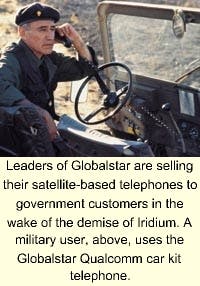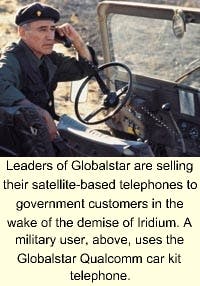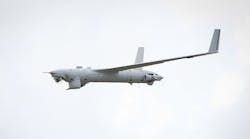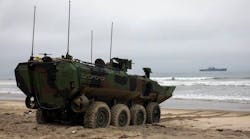By John Rhea
SAN JOSE, Calif. — With the impending demise of the Iridium satellite network for mobile satellite services to fulfill U.S. military needs, leaders of Globalstar Government Services LLC of San Jose, Calif., have moved to fill the void — and picked up several civilian government agencies as customers in the process.
Globalstar officials initially offered to take Iridium and other handsets in trade for a one-time charge of $750 to acquire one of Globalstar's Qualcomm handsets, which normally cost $1,200. The code division multiple access systems are commercial cellular handsets that serve as two-wire telephone sets and wireless units.
Although they are not secure to full National Security Agency levels, the Globalstar one-pound units were used in the military operations in Kosovo, operating through a gateway in Italy, says J. Lee Murphy, operations manager at Globalstar. Through the activation of other gateways, he says he expects to provide data services at 9.6 kilobits per second by the end of the year.
The opportunity arose when Arthur Money — assistant U.S. secretary of defense for command, control, communications, and intelligence — alerted Defense Department Iridium users in a May 30 memo to make arrangements for other mobile satellite service providers. Money cautioned the users that any system they chose had to be compatible with the Global Positioning System (GPS).
In addition to such military customers as the U.S. Marine Corps expeditionary forces and the U.S. Army Battle Labs in Fort Hood, Texas, and the Army Communications-Electronics Command at Fort Monmouth, N.J., civil government agencies also signed up for Globalstar. These include the U.S. Geological Survey, Forest Service, Bureau of Reclamation, and Coast Guard.
What the civilian agencies and the military have in common is their need for communications in remote operations coupled with the GPS positional information, according to Murphy. He expected the growing volume to continue to push down equipment prices. Other potential users include state and local government emergency service operations.




